 It’s hard to believe that a gay actor on a gay TV series broadcast on a gay cable network would have to remain in the closet, but that’s exactly what Darryl Stephens felt he had to do for the two seasons Noah’s Arc was on the air. Stephens recently published a memoir titled Required Reading: How To Get Your Life For Good, that chronicles his experiences as an openly gay black actor in Hollywood. His time on the hit Logo TV series, as well as other stories about typecasting, self-loathing and acceptance, is detailed in the revealing book.
It’s hard to believe that a gay actor on a gay TV series broadcast on a gay cable network would have to remain in the closet, but that’s exactly what Darryl Stephens felt he had to do for the two seasons Noah’s Arc was on the air. Stephens recently published a memoir titled Required Reading: How To Get Your Life For Good, that chronicles his experiences as an openly gay black actor in Hollywood. His time on the hit Logo TV series, as well as other stories about typecasting, self-loathing and acceptance, is detailed in the revealing book.
In an interview with Salon, Stephens discussed how he and his fellow Noah’s Arc cast members handled the press at the time. When asked about the agreement not to disclose sexual orientation with the media, Stephens explained, “When we made Noah’s Arc, every interviewer was asking: Are the actors gay or straight? Now, with Jack Falahee on How to Get Away with Murder, we know straight and gay actors can play straight or gay characters. It’s less an issue for the press.” He went on to reflect, “The culture is changing a lot, and you are seeing 12-13 year-olds coming out. There is no way I could have come out when I was that age.”
Throughout his experiences in the entertainment industry, Stephens found out fairly quickly that “everyone has an idea of what we should look like,” and learned to have a thick skin about the portrayal of black gay men in Tinseltown. This has helped shape his perspective on respectability politics. During the initial debates about Jeffrey Tambor, a straight male actor, playing a trans woman in the hit Amazon series Transparent, Darryl found himself thrown into the fray of the online discussions when he was tagged in a Facebook post by an activist.
 “Whatever part of the movement we are engaged in right now, we need to be sensitive to their experience, even if it’s the rich Republican who can afford all this plastic surgery. It’s important not to negate the things we don’t understand because we don’t understand them.” Stephens synopsized, “Ultimately, what I think was problematic with that activist including me on that Facebook post, is that while I’m not trans, I have trans friends, and I have done the work to try to understand that experience.”
“Whatever part of the movement we are engaged in right now, we need to be sensitive to their experience, even if it’s the rich Republican who can afford all this plastic surgery. It’s important not to negate the things we don’t understand because we don’t understand them.” Stephens synopsized, “Ultimately, what I think was problematic with that activist including me on that Facebook post, is that while I’m not trans, I have trans friends, and I have done the work to try to understand that experience.”
How about we take this to the next level?
Our newsletter is like a refreshing cocktail (or mocktail) of LGBTQ+ entertainment and pop culture, served up with a side of eye-candy.
The backlash Roland Emmerich is experiencing over his film Stonewall was also touched upon during Stephens’ interview. Seeing both sides of the coin, the actor-writer stated, “A white man imagined a story of a white kid who experienced this moment in history. Why is it always through the gaze of a white man? But we can only represent that which we can see and what we experience.”
Stephens emphasized the need for queer people of color to keep telling their stories.
“It’s the importance of all of us sharing our stories. If the black trans person doesn’t tell their story, who will? It’s hard for Roland Emmerich to tell a black, trans story if he doesn’t know anyone to illuminate the details of that. It’s more about storytellers of color and transgender and female and overweight and differently-abled folks telling their individual stories so they can share in that knowledge. It boils down to the legacy we each want to leave.”


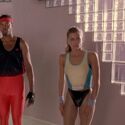





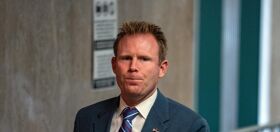
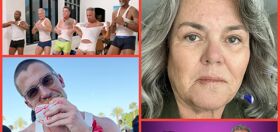
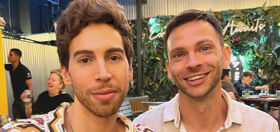

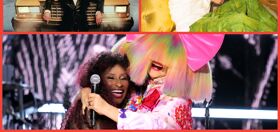
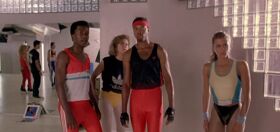


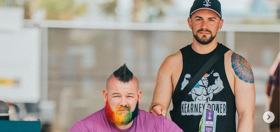
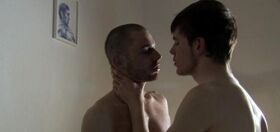


Cam
“”If the black trans person doesn’t tell their story, who will? It’s hard for Roland Emmerich to tell a black, trans story if he doesn’t know anyone to illuminate the details of that.””
_______________
Except for the fact that the Trans Activists were trying to make up history that didn’t happen, claiming that people like Sylvia Rivera were at Stonewall and lead the riot when they weren’t even there, (Marsha P. Wallace, a Transperson who WAS there even acknoledged that Rivera was passed out at Bryant Park on Heroine during the Riot and Wallace had to go up there and tell her what happened) and they were trying to pretend that the actual black lesbian Drag King (Stormee DeLarverie) didn’t exist.
They weren’t trying to tell the stories, they were trying to erase anybody that didn’t fit in with the false history they were trying to tell.
Ummmm Yeah
There is no Stonewall controversy. There is a attempt to rewrite history by black, brown and trans washing it. The majority of the people at Stonewall were white gay males in pants and it was probably started by a lesbian. No one knows for sure who or what started it. But let’s just look at who these latest lies are coming from. This nelly ass little black queen thought no one knew he was gay. Some people are just delusion from the time they wake up until the time they go to bed.
VampDC
I can’t with this “Stonewall” controversy.
Don’t like it – go out and make your own F****** movie. I’m sick of people sitting on their ass hoping everyone will cater everything to their demands. This was a film makers vision who put a lot of effort into his movie.
What a dumb comment he made. I didn’t know who this guy was to start but now I do, and I’m not a fan.
Jonathonz
I used to see Darryl at a cafe in LA and he would always smile at me. I was so shy I’d look away….now I wish I’d said Hi! He’s seriously one of the most beautiful men on the planet…
Cam
And remember, this is the SAME group of people who have attacked and tried to get people to boycott the movie “Paris Is Burning” for a decade. So even when somebody DID make a movie featuring Trans people of color, they attacked the movie because the person who made it wasn’t Trans.
RuPaul featured many trans performers on his show, and they attacked him, now these same anti-LGB activists are trying to negate the life of the woman who actually threw the first punch at Stonewall.
We get it, they hate Lesbians, Gays, Bisexuals, Drag Queens, etc… Imagine if they spent even one tenth of the energy fighting against right wing bigotry that they spend attacking Lesbians, gays, and bisexuals.
Arcamenel
I’ve always loved him and this just made me love him 10x more.
Realitycheck
@Jonathonz: He is gorgeous…….
you didn’t smile back!!! What is wrong with you!!! LOL Kidding I have done that many times over, we all do……….
Xzamilio
There’s no controversy because only a handful of LGBT people even care about this movie. Sorry bout it, but it’s an integral part of the gay rights movement but it’s one reduced to folklore and legend, and it will NEVER be told in 100 percent accuracy. Plus, no one is going to see it… so there’s that.
Get mad if you want, but them’s the breaks, kid.
mujerado
@Xzamilio: No history of ANYTHING is ever known 100%, but David Carter’s “Stonewall” tells the story of that event as well as anyone ever will. He interviewed participants from both sides, the rioters and the law enforcers and took 10 years to research and write it. Anyone who wants to know as accurately about Stonewall as we can know any historical event should find a copy, new or used.
Xzamilio
@mujerado: Okay. Thanks.
Daveliam
@Ummmm Yeah: So much hate within our community. What could this man ever have done to deserve being called a ‘nelly ass little black queen’? Seriously?
jwtraveler
Some of you really need to relax. Have a drink or get f**cked or something.
SportGuy
Couldn’t really care about this movie. Don’t plan on seeing it like many others. I will read what actually happened instead of what was made up for a crappy movie that will and should bomb.
Kangol
@jwtraveler: With you. I love how this thread about this gorgeous man, Darryl Stephens, was hijacked by a rant defending Roland Emmerich. Didn’t a number of posts about that already fill Queerty’s pages?
Anyhow, it’s amazing that the people behind Noah’s Arc (such a cute show) ever thought anyone would think many of those actors were anything other than gay. I’m still not sure whether Jensen Atwood (another beauty) is gay or not, but Stephens, Doug Spearmen, and many of the supporting actors were clearly gay. I mean, Wilson Cruz, hello? Keith Hamilton-Cobb? Uh, yeah!
Just typing their names makes me wistful for that show. Nothing like it on TV these days. Nothing.
meghanada
Stonewall historian David Carter:
“My research for this history demonstrates that if we wish to name the group most responsible for the success of the riots, it is the young, homeless homosexuals, and, contrary to the usual characterizations of those on the rebellion’s front lines, most were Caucasian; few were Latino; almost none were transvestites or transsexuals; most were effeminate; and a fair number came from middle-class families.”
Tackle
This is about Darryl Stephens and his book. Not about Stonewall, or David Carter’s book!
Captain Obvious
Seems like the people behind “Stonewall” want there to be a controversy so someone will actually bother to see it.
No one is going to see this lame movie anyway and it’ll die with a whimper. Doesn’t matter if it’s accurate or not.
Bob LaBlah
@Tackle: “This is about Darryl Stephens and his book. Not about Stonewall, or David Carter’s book!”
You hit the nail on the head there. I don’t know about the rest of you but I sure as hell don’t remember nothing about a controversy involving him a film he doesn’t have a dime invested in until this book of his came out. Did any of you?
Daniel-Reader
His comments about all gay people being self loathing at some point is obnoxious. HE might be a self loathing douche, but that doesn’t mean everyone else who is LGBT has ever been self loathing. What a putz.
Xzamilio
@Captain Obvious: I have to agree. It seems like this “controversy” is an attempt to drive up interest in this movie, and it simply is not there. I have not seen any promotion for this movie, even on other gay sites. I think I saw HuffPost Gay Voices did a story. Me, personally, I’m just not interested to see it in theaters…
Bob LaBlah
@Xzamilio: If they had to dig up a long forgotten “gay” star because no one else would open their mouth up in support that alone says the movie a dead on arrival. The first season of Noah’s Arc was WONDERFUL but by the second season it got sickening to see him sounding and dressing like he was twelves years old in every episode. You know a show is in trouble when all the costars outshine you in performance and interest in the character.
Xzamilio
@Bob LaBlah: I loved me some Noah’s Arc in the beginning, but you ain’t never lied. For me, it became about everybody but Noah… hell, I even liked Wade with the other guy around the end. And Ricky and Junito kissing while Anthony David’s “Words” played in the background… I still get goosebumps remembering that scene.
blasted
@Cam: You statement about Paris is Burning just sounds ignorant. Yes Paris is Burning highlighted trans and gay people of color (which was quickly appropriated into gay white male culture), but you completely missed the mark on what Stephan said. Paris was burning was not told by people of color, it was story put together and edited by a White woman, Jennie Livingston. How is that people of color telling their own stories??? Yes she interviewed them but the narrative wasn’t put together from their perspective which is completely different. He just stated above that a white gay male can only tell his story from the perspective of a white gay male (which is true), it’s no different for Jennie Livingston.
And if what you stated was true about Stonewall that it was full of white gay male, do you honestly think that with the amount of animosity that comes from gay men especially gay white men, that they would include in any retelling of the story trans people whom they hold their noses up to and exclude from conversations. It’s highly unlikely, that the stories would be unbias.
Cam
@blasted: said…
“@Cam: You statement about Paris is Burning just sounds ignorant. Yes Paris is Burning highlighted trans and gay people of color (which was quickly appropriated into gay white male culture), but you completely missed the mark on what Stephan said. Paris was burning was not told by people of color, it was story put together and edited by a White woman, Jennie Livingston. How is that people of color telling their own stories???”
and
“”And if what you stated was true about Stonewall that it was full of white gay male,””
_____________________________
So by your logic, the fact that practically all of the people interviewed in the movie were trans people of color is irrelevant because the person who filed it was white?
So what you have basically said is that a white director should never hire anybody trans or any minority because nothing that they say or do will matter or be relevent because the director is white?
Your comment is not just ignorant, but dangerous and rac-ist. It’s dangerous because while it is obviously a lie, you also can’t point out any part of “Paris Is Burning” where what the people said was somehow subverted and changed.
So again, you don’t care about any exposure or success for people of color or trans people, you just hate white people or gays and lesbians. And that is all that matters to you.
And as for your last comment, claiming that I said that Stonewall was full of White Gay Males, no, actually I said that the first punch thrown at Stonewall was thrown by a black lesbian, and the Trans activists were trying to erase her existence. JUST AS YOU JUST TRIED TO DO by lying about what I said. You once again tried to deny the existence of her because the truth doesn’t fit with your made up world.
Cornellcw3
So by your logic, the fact that practically all of the people interviewed in the movie were trans people of color is irrelevant because the person who filed it was white?
So what you have basically said is that a white director should never hire anybody trans or any minority because nothing that they say or do will matter or be relevent because the director is white?
Your comment is not just ignorant, but dangerous and rac-ist. It’s dangerous because while it is obviously a lie, you also can’t point out any part of “Paris Is Burning” where what the people said was somehow subverted and changed.
So again, you don’t care about any exposure or success for people of color or trans people, you just hate white people or gays and lesbians. And that is all that matters to you.
And as for your last comment, claiming that I said that Stonewall was full of White Gay Males, no, actually I said that the first punch thrown at Stonewall was thrown by a black lesbian, and the Trans activists were trying to erase her existence. JUST AS YOU JUST TRIED TO DO by lying about what I said. You once again tried to deny the existence of her because the truth doesn’t fit with your made up world.
__________________________________
@cam
I don’t ever post on this site but I gotta comment on this because I’ve never read anything so ignorant. Blasted never said Paris is Burning is irrelevant because the director is white. No one has said that but you. Stop manipulating and purposely misconstruing what Blasted said just to victimize yourself and white people. Blasted clearly said that Paris is Burning was edited from a white woman’s point of view, which it was and that is a fact. Why does that make you so angry and bitter?
“YOU HATE WHITE PEOPLE IS ALL THE MATTERS”
You’ve spoken like a true Klansman and that is the problem a lot of people of color have with white people directing and editing stories is that they will make it ALL about themselves being the victim and the hero. Paris is burning in my opinion was a beautiful documentary but Stonewall is a fictional movie and I am glad that the main character Jeremy Irvine has come out and said that it’s fiction.
Bob LaBlah
@Xzamilio: The two I loved the most were Gregory Keith and Rodney Chester (the Alex and Trey couple). Both were “big boned” guys. In other words, they were cast to show that everyone, race be damned, does not have chiseled abs with a bubble butt that one can sit a cup and saucer of coffee on. The movie went WAY overboard in portraying the gym types (bikini clad, ass hugging underwear and all) and that was all it took for me to bury that show in my memory bank.
I also feel that Queer as Folk “over stayed” its welcome as well.
Clark35
@Cam: Well said. Now the r@c1st hate group #blacklivesmatter is courting black trans women; but they need cash. https://scontent-lga1-1.xx.fbcdn.net/hphotos-xft1/v/t1.0-9/11855636_485716598266257_3387595086813211389_n.png?oh=563619013e9c878275e776e973c63665&oe=5664A313
Cornellcw3
@Clark35
You and Fox News Elisabeth Hasselbeck are one in the same. Yes black people are keeping the white man down just like Charles Manson said.
http://www.nydailynews.com/news/national/elisabeth-hasselbeck-black-lives-matter-hate-group-article-1.2344132
Cam
@Cornellcw3: said….””I don’t ever post on this site but I gotta comment on this because I’ve never read anything so ignorant. Blasted never said Paris is Burning is irrelevant because the director is white. No one has said that but you. Stop manipulating and purposely misconstruing what Blasted said just to victimize yourself and white people.””
____________________________
Nice try, but if you’re going to lie you may want to lie about something that can’t be cut and pasted from this same discussion thread. The comment that “Blasted” made is below.
“”Paris was burning was not told by people of color, it was story put together and edited by a White woman, Jennie Livingston.””
Oooops, so they DID say that, but then again, you already knew that and are just another person trying to erase reality.
You then said this………..””You’ve spoken like a true Klansman and that is the problem a lot of people of color have with white people directing and editing stories is that they will make it ALL about themselves being the victim and the hero. “”
Actually what I said was………..”””and they were trying to pretend that the actual black lesbian Drag King (Stormee DeLarverie) didn’t exist.
They weren’t trying to tell the stories, they were trying to erase anybody that didn’t fit in with the false history they were trying to tell.”””
So according to YOU, I”m a Klansman for attacking trans activists for trying to erase a black lesbian from the Stonewall Story.
The Klan must be different than I thought if a person is called a Klansman for defending a Black Lesbian’s place in history.
Oh, but again, that’s right, you KNEW you were lying, and again, you’re just another person trying to create fake history, and will make up stories and call anybody names who tries to tell the truth. Stormee DeLarverie is acknowledged by MULTIPLE witnesses to be the person who through the first punch and engaged the crowd, and yet to defend this brave woman of color makes you call people a Klansman.
You Trans Activists are really showing your true selves now aren’t you?
Thad1527
Darryl Stephens’ book is available at amazon.com, and the one review currently up seems interesting.
surreal33
Seriously?? Does all actors believe the american public is stupid? Darryl Stephens, screams gay queen. No actor is that good. There was never a question Darryl Stephens, was gay because it was so obvious. Mr Stephens, I understand you want sell books however, this subterfuge is insulting and insincere.
Cornellcw3
@Cam:
Cam you told Blasted that he hate white people and that was all that matters. Why did you say that Blasted hates white people? Where did you even get that from? And most of all why is hating white people ALL that matters? Blasted said that Paris Is Burning was edited by a white woman and then you made accusations Blasted said Paris is Burning is irrelevant and he hates white people when he NEVER even said that. You twisted and spewed Blasted words into whatever you wanted which was to victimize the white race.
Stop trying to oppress yourself when you’re not being oppressed. No one is attacking you or white people. What you are doing is proving Blasted point that you can edit something to fit whatever view you want it to. You’re proving his point.
Cam
@Cornellcw3:
And again, your post is rendered irrelevant because you still lie. He said that it was NOT Trans people telling their own stories because of that.
So again, you anti-gay, anti-lesbian, anti-bisexual, Trans activists are showing your true intentions.